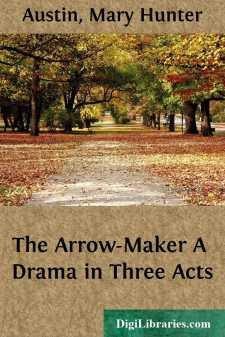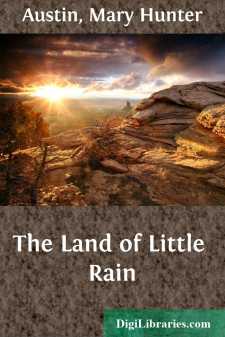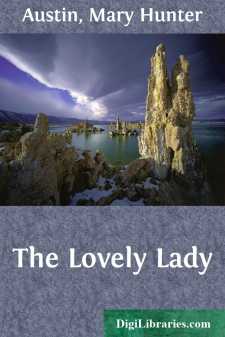Categories
- Antiques & Collectibles 13
- Architecture 36
- Art 48
- Bibles 22
- Biography & Autobiography 813
- Body, Mind & Spirit 142
- Business & Economics 28
- Children's Books 17
- Children's Fiction 14
- Computers 4
- Cooking 94
- Crafts & Hobbies 4
- Drama 346
- Education 46
- Family & Relationships 57
- Fiction 11829
- Games 19
- Gardening 17
- Health & Fitness 34
- History 1377
- House & Home 1
- Humor 147
- Juvenile Fiction 1873
- Juvenile Nonfiction 202
- Language Arts & Disciplines 88
- Law 16
- Literary Collections 686
- Literary Criticism 179
- Mathematics 13
- Medical 41
- Music 40
- Nature 179
- Non-Classifiable 1768
- Performing Arts 7
- Periodicals 1453
- Philosophy 64
- Photography 2
- Poetry 896
- Political Science 203
- Psychology 42
- Reference 154
- Religion 513
- Science 126
- Self-Help 84
- Social Science 81
- Sports & Recreation 34
- Study Aids 3
- Technology & Engineering 59
- Transportation 23
- Travel 463
- True Crime 29
The Arrow-Maker A Drama in Three Acts
Description:
Excerpt
The greatest difficulty to be met in the writing of an Indian play is the extensive misinformation about Indians. Any real aboriginal of my acquaintance resembles his prototype in the public mind about as much as he does the high-nosed, wooden sign of a tobacco store, the fact being that, among the fifty-eight linguistic groups of American aboriginals, customs, traits, and beliefs differ as greatly as among Slavs and Sicilians. Their very speech appears not to be derived from any common stock. All that they really have of likeness is an average condition of primitiveness: they have traveled just so far toward an understanding of the world they live in, and no farther. It is this general limitation of knowledge which makes, in spite of the multiplication of tribal customs, a common attitude of mind which alone affords a basis of interpretation.
But before attempting to realize the working of Indian psychology, you must first rid yourself of the notion that there is any real difference between the tribes of men except the explanations. What determines man's behavior in the presence of fever, thunder, and the separations of death, is the nature of his guess at the causes of these things. The issues of life do not vary so much with the conditions of civilization as is popularly supposed.
Chiefest among the misconceptions of primitive life, which make difficult any dramatic presentation of it, is the notion that all human contacts are accompanied by the degree of emotional stress that obtains only in the most complex social organizations. We are always hearing, from the people farthest removed from them, of “great primitive passions,” when in fact what distinguishes the passions of the tribesmen from our own is their greater liability to the pacific influences of nature, and their greater freedom from the stimulus of imagination. What among us makes for the immensity of emotion, is the great weight of accumulated emotional tradition stored up in literature and art, almost entirely wanting in the camps of the aboriginals. There the two greatest themes of modern drama, love and ambition, are modified, the one by the more or less communal nature of tribal labor, the other by the plain fact that in the simple, open-air life of the Indian the physical stress of sex is actually much less than in conditions called civilized.
When the critics are heard talking of “drama of great primitive passions,” what they mean is great barbaric passions, passions far enough along in the process of socialization to be subject to the interactions of wealth, caste, and established religion, and still free from the obligation of politeness. But the life of the American Indian provides no such conditions, and, moreover, in the factor which makes conspicuously for the degree of complication called Plot, is notably wanting,—I mean in the factor of Privacy. Where all the functions of living are carried on in the presence of the community, or at the best behind the thin-walled, leafy huts, human relations become simplified to a degree difficult for our complexer habit to comprehend. The only really great passions—great, I mean, in the sense of being dramatically possible—are communal, and find their expression in the dance which is the normal vehicle of emotional stress.
In The Arrow-Maker the author, without dwelling too much on tribal peculiarities, has attempted the explication of this primitive attitude toward a human type common to all conditions of society. The particular mould in which the story is cast takes shape from the manner of aboriginal life in the Southwest, anywhere between the Klamath River and the Painted Desert; but it has been written in vain if the situation has not also worked itself out in terms of your own environment.
The Chisera is simply the Genius, one of those singular and powerful characters whom we are still, with all our learning, unable to account for without falling back on the primitive conception of gift as arising from direct communication with the gods....






